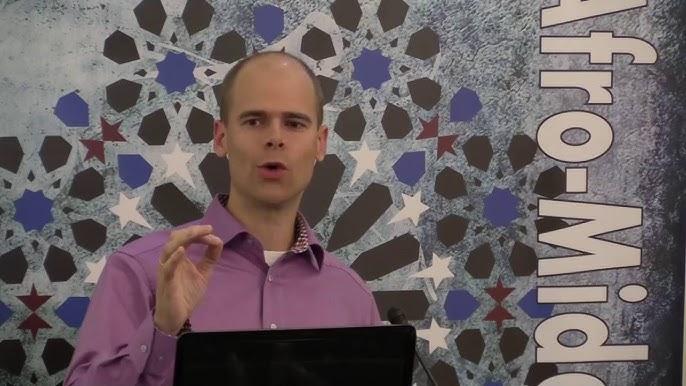Transition plan is incorrect, unclear and lacks vision
Why Islam & Arabic must be preserved

If one thing has become clear from the news over the past 20 years, is that Islam and the Arab world are a major concern in both the Middle East and the Netherlands, with 2023-2024 perhaps taking the cake. Nevertheless, on Monday October 28, the Faculty of Humanities at Utrecht University announced that it considers necessary to abolish six Bachelor's programmes, including the Islam & Arabic one, as part of a transition plan.
The Faculty Board's reasoning was that austerity measures from the government are forcing the faculty to drastically cut costs and there is no other way to do so than completely abolishing six Bachelor's programmes – including Islam & Arabic and Religious Studies – because they do not attract more than 25 freshers every year. According to the board, these programmes would already be difficult to maintain under normal circumstances, but with the cutbacks announced by the government, they become untenable. Although this may sound perfectly logical, the board's reasoning is incorrect, unclear and demonstrates a lack of vision.
Incorrect
The faculty board's arguments could lead one to conclude that the programmes Islam & Arabic and Religious Studies are in a weak position. After all, there are few students interested in these programmes as majors. Although this is true, our programmes are strong. Focusing solely on the number of first-year students means overlooking other important factors. The low number of students majoring in these fields does not mean that the lecture halls are empty: on the contrary, they are full. Both programmes attract many students from other programmes, an average of 40 per course. The first-year Arabic course has 143 students this year, a number that similar programmes in the Netherlands can only dream of. The board's reasoning is therefore incorrect. In fact, how much more successful could we have been?
The two groups that form the basis of the programmes Islam & Arabic and Religious Studies also enjoy an excellent international reputation in the field of research. They have published on many leading publications, secured more than 16 million euros in grants, and received high national and international awards. What more could you want?
In addition, colleagues within the two departments pay a lot of attention to public engagement, reaching a broader audience through regular publications, lectures, and participation in the media, talking about all kinds of issues surrounding the themes of religion, Islam and the Middle East. In short, in a period in which the study of Islam and religions in general is more relevant than ever and Utrecht-based researchers in this field are world leaders, contributing significantly to public debate, the faculty board decides to close two successful top programmes. Is that a wise decision?
Unclear
The faculty board says it aims to preserve the disciplines even though the programmes are disappearing. First, one can question whether this measure will actually generate a lot of money – in the Humanities, costs are almost exclusively related to personnel, regardless of where they work. Secondly, it is very questionable whether it is possible to do that. The serious study of world religions and the language education required for it both demand a solid institutional anchoring that cannot be obtained if the expertise is fragmented. If the transition plan does not achieve that, how should future generations of Islamologists and Arabists, Middle East correspondents and diplomats be educated?
Lack of vision
The intention to close the Islam & Arabic and Religious Studies programmes is therefore evidence of a lack of vision. If one focuses blindly on the number of students majoring in these topics, one loses sight not only of the other qualities of the programmes and the departments, but also of their great social and academic importance.
A significant part of the Dutch population (as well as the students and staff at Utrecht University) is Muslim or comes from a country with a Muslim majority, which is problematic in the eyes of many Dutch people, as evidenced by the latest election results. In addition, the Middle East is (and remains) an area that requires international attention, with all the consequences that this has had in the Netherlands, including in Utrecht, over the past year. All this requires in-depth study and thorough expertise, matters that are coming under serious pressure as a result of the Faculty Board's decision.
The Faculty Board's plan to abolish the Bachelor's programmes also clashes with Utrecht University's vision. If there are two programmes that give shape to the goal of bringing non-Western perspectives to the fore in the UU curriculum, they are Islam & Arabic and Religious Studies. The staff within these programmes research and teach religion, language, culture, philosophy, politics, history and literature in an interdisciplinary manner and in a way that is highly valued by students. If diversity is really so important to Utrecht University, why is the existence of these two Bachelor's programmes being threatened?
Sustainable future
In light of the above, it seems highly undesirable and unwise for us, the staff of Islam & Arabic and Religious Studies, to continue on with the Transition Plan. Instead of surrendering to an incorrect, unclear and visionless project, we propose to pause and work together to find a solution that contributes to a financially sustainable future for the Faculty of Humanities and truly values and preserves our qualities. We owe this to science, society, the next generation of experts and ourselves as a university.